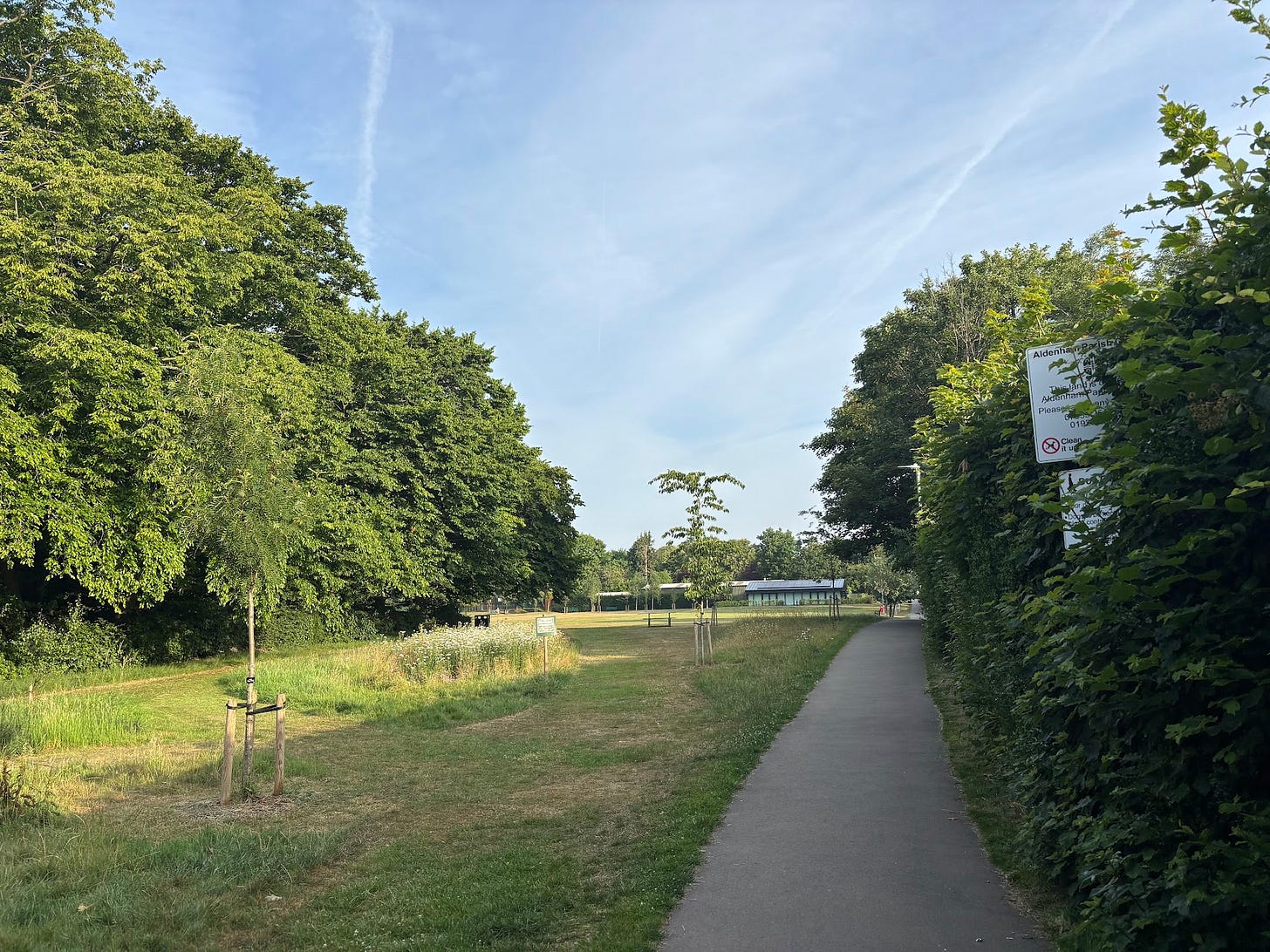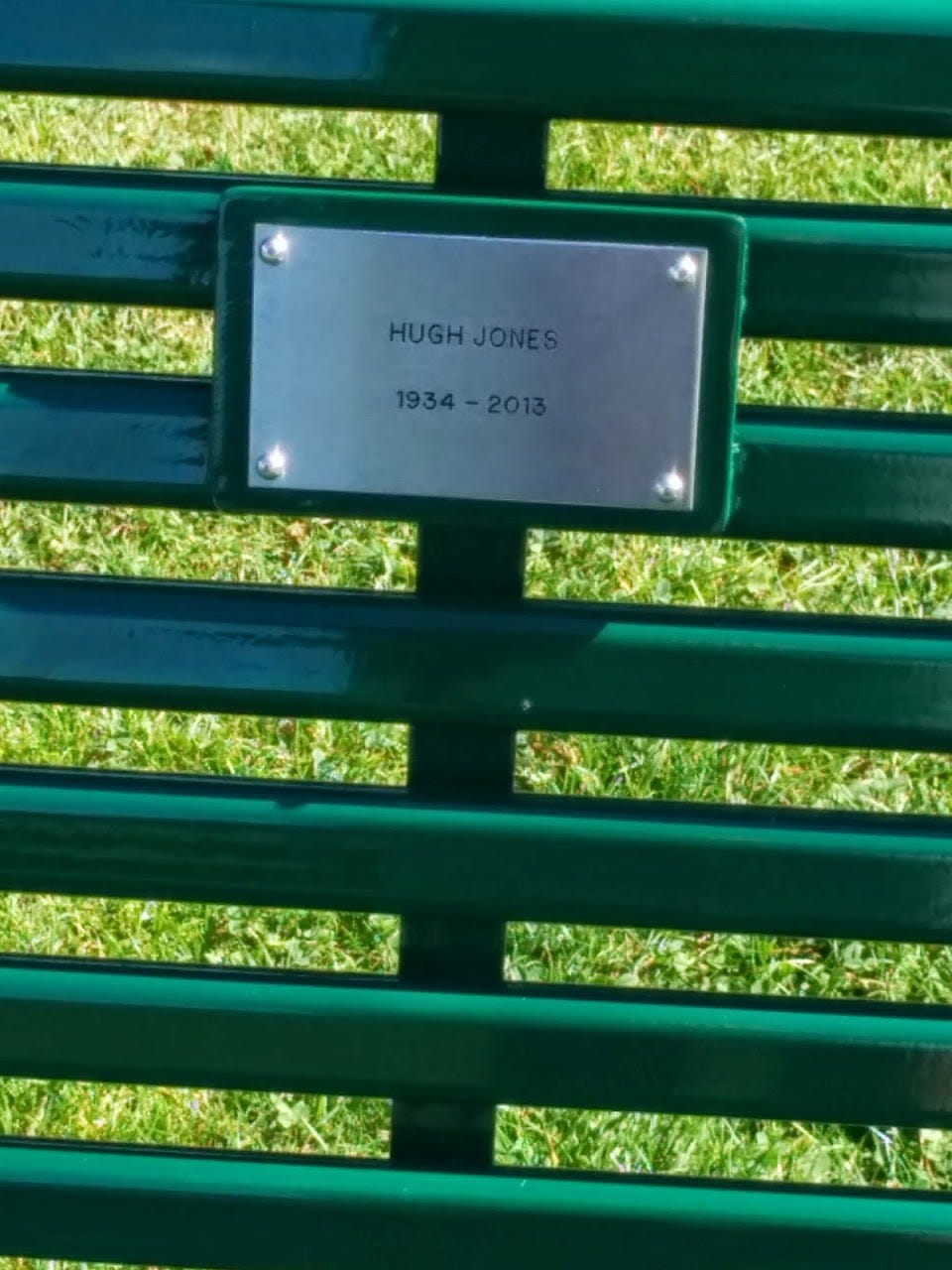Two Fridays ago, I had the pleasure of giving a lecture at a London school. I spoke for 45 minutes about Latin poetry and then led a workshop for the kids. For this workshop, they had to compose their own love poems, based on Catullus’ famous poem, which begins with the line - vivamus, mea lesbia, atque amemus, or Let us live, my Lesbia, and let us love.
As a salesman, it’s only right that I add the following message. Then, we can get on with the rest of my post. Here is my little message:
If YOU, dear reader, are a teacher at a school, somewhere in the world, and you would like me to come and give a lecture or a workshop at your school, send me an email (harry.donoghue@gmail.com) or message me on Instagram. I’d love to talk to you…
With that out of the way, let’s get into the main action of this piece…
At 10am on Friday, I headed over to Wembley, in North London, to the international school where I was going to speak. In the early hours before, I spent a very pleasant morning with my grandmother in the leafy village of Radlett, in Hertfordshire.
I woke up at 06:20 on the floor in the upstairs living room. I had slept on a blanket on the carpeted floor. It’s a fairly thin, rectangular room with a cream faux-leather sofa on one side, and a white desk and cupboard opposite, lining the front wall. On the desk, there are stacks of books and framed photographs of my cousins and me as young children.
If you sit on the wicker chair at the desk, you can look outside the window, onto the gravel drive and the road that leads to the town centre.
I brushed my teeth and folded my humble blanket. I then went downstairs and put my running shoes on. I wanted to have a jog in the nearby park before I went out to lecture, later on in the day. My granny was still asleep, and so I tiptoed out of the main hall and inched the front door shut behind me. I heard the click of the lock, and ran out of the drive, onto the road. This took me to a footpath that cut through a hedge between some houses.
It was a beautiful sunny morning that Friday. The footpath turned right and I came to a gate, beyond which the view of the park opened up before me: shafts of sunlight scattered through leafy trees and the grass sparkling with dewey moisture.
I was running on the concrete footpath that cuts through the grass. It’s arrow straight and goes along the entire length of the park, ending in a car park about 150m away. On the right of the path, there’s a large climbing frame made out of log-like wooden beams and dark rope that hangs tightly across them. To this day, I still haven’t seen anything quite like it. It’s about 15ft high, with great gaps between the rope. If you were to fall, you’d definitely injure yourself. Behind it, separated by a small hedge, there’s another, more colourful climbing frame for younger children.
On the left of the path, there’s a large surface of grassy earth. It’s rectangular in shape and measures 400m if you walk around its outer edge. This is the main attraction of the park - there are two metallic, netless football goals in the middle, with a copse and basketball court on either edge. There are also benches with dark green metallic frames. In the centre of these benches, there are little plaques in memory of people from the village. On this early morning, the large green space was empty apart from dog walkers, mothers pushing prams, and me.
I ran over towards the furthest goalpost. My plan was to do laps of the park and mix in sets of pull-ups. I would do one 400m lap, and then stop at the goalpost and execute 3 sets, making sure to lower myself to a hang each time before starting the next rep. The crossbar of the goal was slightly too thick. I suddenly felt self-conscious, but decided that, if anyone were to come near me and poke fun, I would proclaim that the bar was blatantly not regulation-sized.
As I did my laps of the park, I made sure to always pass by and touch one particular bench. It stands about halfway along the concrete path and has the perfect view of the green space. It’s also lightly shaded by two trees. It has a plaque that reads: Hugh Jones, 1934-2013. This is my grandfather's name and it’s a bench that my granny organised to be made, soon after he passed away. His ashes were scattered into the River Thames, at a point where it passes Tilbury Fort, in Essex, and so there’s no gravestone bearing his name in some rainy, bleak cemetery. This bench is the only physical monument dedicated to him, and I make sure to greet him whenever I pass it. On one of my last laps, I stooped over and kissed the plaque and seconds after, a pair of ants scurried over the shining silver metal. I took this as a sign of my grandad saying hello back to me, approving my gesture.
My granny and grandad always used to take me to this park - to play football or climb on the treacherous logs. My dad also used to spend time here when he was a boy - it was the place he and his friends would come to after school. As I stood by the goalpost, I thought about what it would be like to be a Buddhist monk. I’d be able to sit and meditate on the grass for hours until eventually, the images of the past would appear before my eyes - I’d be able to feel and see the energy of my Dad playing football in the 1970s and myself walking with my grandparents 15 years ago. I’d pass into a hidden realm, and the kindly phantoms would dance before my eyes, floating just above the surface of the green-brown grass. Perhaps these spirits would even notice me, and sit beside me for a while.
At dinner, the evening before, I had asked my granny if she believed in heaven or some concept of an afterlife. She paused and reflected for a brief moment, but then shook her head. “I don’t think so. It’s always seemed absurd to me, the idea of meeting a romantic partner again in heaven. What if you’ve remarried?”.
I have no idea myself, but it would be nice to be surprised. I often think about what Herman Melville said…
"Death is only a launching into the region of the strange Untried; it is but the first salutation to the possibilities of the immense Remote, the Wild, the Watery, the Unshored"






I am comforted by Pascal‘s wager. Put in common English, it’s better to be safe than sorry.